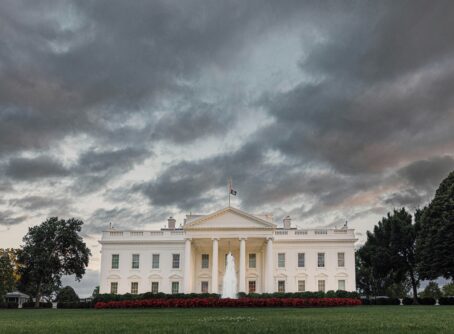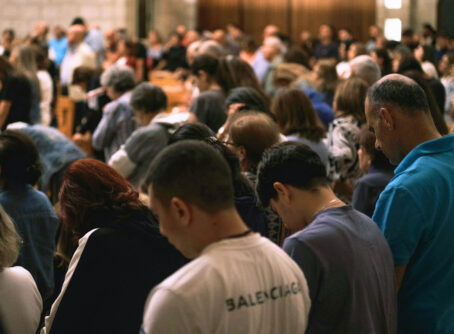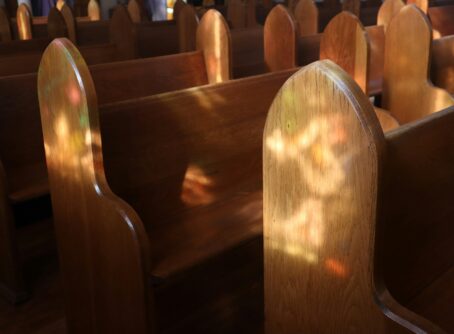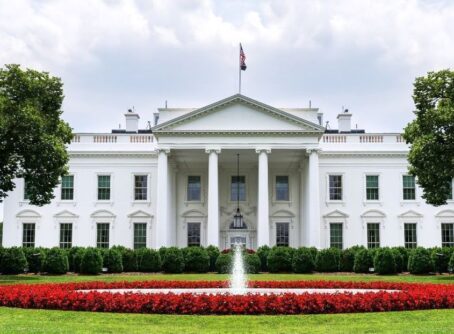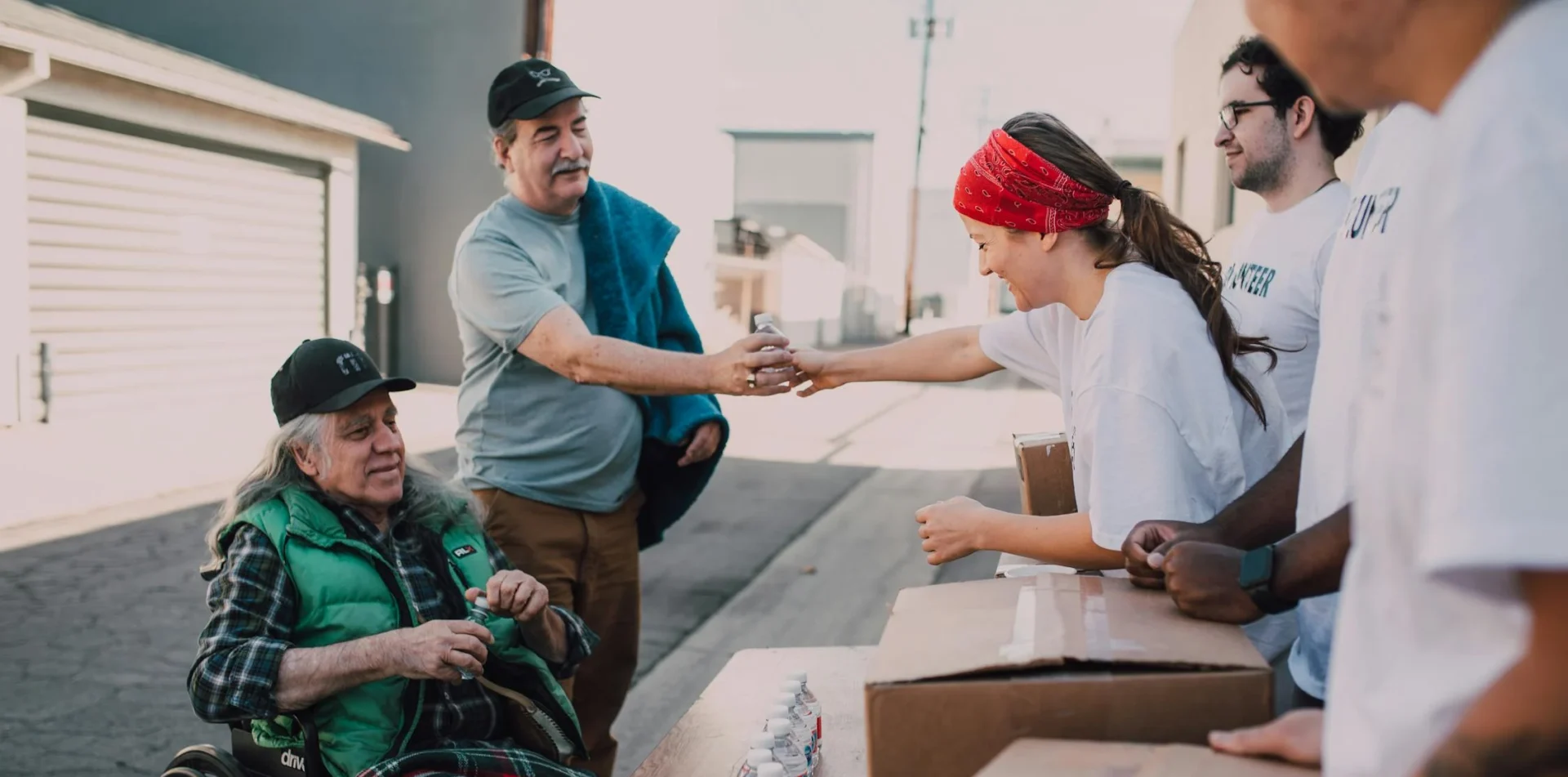
Religious freedom is often focused on during moments of conflict, such as when individuals or organizations must defend their beliefs against governmental or societal pressure. Whether it’s a conscientious objector refusing military service, a doctor declining to perform a procedure that contradicts their faith, or an employer seeking to hire those who share their God-centered worldview, these cases draw attention to the necessity of protecting freedom of faith and Spirit. However, focusing only on moments of conflict risks overlooking the profound, everyday ways that religious freedom shapes individuals, communities, and public life.
Religious freedom is not merely a shield against external threats; it is a pre-requisite that enables religious and spiritual believers and the organizations they establish to live out their sacred precepts in every sphere of their lives, including institutions that serve the public. In fact, for many historic religious traditions and spiritual paths, social care and justice seeking for all is an important core value sourced through their religious or spiritual worldviews. This truth is often obscured in public discourse. For example, when parents choose a faith-based child care center, they rarely think of this as an incarnated act of their religious or spiritual freedom. When a person advocates for the poor, the orphan, or the stranger in response to a divine calling, they do not usually frame their service as a manifestation of religious freedom. Yet, these quiet acts of devotion are essential expressions of spiritual values made flesh, enabled by the freedom to live according to one’s beliefs.
For those of us of the Christian tradition, the Apostle Paul reminds us in 1 Corinthians 10:31, “So, whether you eat or drink or whatever you do, do it all for the glory of God.” Similarly, Deuteronomy 11:18-19 urges the faithful to integrate God’s words into every aspect of our lives, binding God’s words to our hearts, teaching them to our children, and living them out in the ordinary rhythms of the day. These scriptures underscore that religious freedom is not limited to the extraordinary or the controversial; it is woven into the fabric of daily life, empowering individuals and communities to act as vessels of divine love and service.
Catholic Charities Bureau and the Threat to Religious Freedom
The case of Catholic Charities Bureau v. Wisconsin Labor & Industry Review Commission provides a stark example of how faith-based organizations are often forced to navigate tensions between their spiritual commitments and secular systems. Catholic Charities Bureau, the social services arm of the Diocese of Superior, embodies its mission by serving the economically disadvantaged, the elderly, and the disabled. Guided by Catholic social teaching, its work is an expression of the Church’s call to uphold human dignity and care for the vulnerable.
In 2024, the Wisconsin Supreme Court ruled that Catholic Charities’ services were not “typical” religious activities, a decision that excluded the organization from participating in the Catholic Church’s unemployment compensation program. Instead, Catholic Charities was required to join Wisconsin’s secular unemployment system. The court argued that because Catholic Charities served people of all faiths—and not exclusively Catholics—its work could not be deemed inherently religious. This reasoning reflects a misunderstanding of how faith informs the mission of Catholic organizations.
Catholic social teaching holds that acts of service are not optional charitable gestures but sacred obligations, deeply rooted in Christ’s command to love one another (John 13:34). The preferential option for the poor—a central tenet of Catholic doctrine—compels believers to prioritize the needs of society’s most vulnerable. Catholic Charities’ spiritual approach to service reflects this commitment, offering care to all in need as a reflection of divine love. To categorize such work as “non-religious” because it extends beyond the Catholic community is to ignore the theological foundations that drive it.
The consequences of the Wisconsin Supreme Court’s decision go beyond Catholic Charities. By narrowing the definition of religious activity to acts performed exclusively within religious communities, the ruling threatens to confine faith to private spheres, stripping it of its public and communal dimensions. This compartmentalization undermines the broader vision of religious freedom, which enables faith-based organizations to integrate spiritually sourced values to serve the most marginalized with tangible service in ways that benefit society as a whole.
But there is hope. On December 13, 2024, the U.S. Supreme Court justices agreed to review Wisconsin’s court ruling that Catholic Charities of the Diocese of Superior’s social services for the most vulnerable members of society—the economically disadvantaged, the disabled, and senior citizens—consist primarily of non-religious activities. Catholic Charities, represented by Becket Fund for Religious Liberty, is requesting that the U.S. Supreme Court rule instead that these are religious activities and that the Catholic Charities Bureau is authentically a religious organization. Then it will be able enroll in the Church’s unemployment program.
“Catholic Charities Bureau is on the front lines bringing love, healing, and hope to the most vulnerable members of our community,” stated Bishop James Powers, Bishop of the Diocese of Superior. “We pray the Court recognizes that this work of improving the human condition is our answer to Christ’s call to serve those in need.”
The Three Ps: A Framework for Protecting Faith-Based Action
To understand and safeguard the vital contributions of faith-based organizations like Catholic Charities, it is helpful to consider a framework rooted in three essential dimensions: Public Policy, Organizational Practices, and Public Positioning.
1. Public Policy: Advancing Pluralism and Religious Freedom
Faith-based organizations operate within complex public policy environments that can either support or hinder their ability to serve according to their beliefs. The Wisconsin Supreme Court’s ruling against Catholic Charities highlights how poorly designed policies can create unnecessary obstacles for religious nonprofits. Advocating for pluralistic policies that respect the unique contributions of faith-based organizations is essential.
For Catholic Charities, participation in the Catholic Church’s unemployment program aligns with the principle of subsidiarity, a cornerstone of Catholic social teaching that emphasizes the importance of local and community-based solutions. Policies that force organizations to abandon such systems in favor of secular alternatives not only disrupt their operations but also erode their spiritual foundations.
2. Organizational Practices: Maintaining Mission and Identity
Faith-based organizations must continually align their internal practices with their spiritual missions to navigate legal and cultural challenges. For Catholic Charities, this means articulating how its services—feeding the hungry, caring for the sick, and advocating for systemic change—are rooted in its Catholic identity. By strengthening their spiritual core, organizations can resist pressures to secularize while building partnerships that respect their distinctiveness.
Catholic Charities’ inclusive approach to service exemplifies this principle. Its work transcends denominational boundaries, offering care to all as an expression of God’s universal love. This model demonstrates how faith-based organizations can maintain their religious identity while engaging in pluralistic contexts.
3. Public Positioning: Communicating the Value of Faith-Based Service
In a polarized cultural climate, faith-based organizations must proactively communicate the connection between their religious values and their social impact. Public narratives that emphasize the spiritual motivations behind acts of service can help build broader understanding and support for their missions.
For example, Catholic Charities’ work is not merely about meeting material needs but about fostering spiritual wholeness and human dignity. Highlighting this dual purpose can counter narratives that seek to separate faith from service, reinforcing the idea that religious freedom is essential for both individual and communal flourishing.
Toward a Broader Vision of Religious Freedom
The case of the Catholic Charities Bureau challenges us to rethink the scope of religious freedom. It is not merely a legal right to worship or resist conflict but a sacred foundation that allows individuals and organizations to live out their faith in every aspect of life. From the quiet acts of enrolling a child in faith-based education to the transformative work of advocating for systemic justice, religious freedom enables believers to respond to God’s call in ways that enrich society.
Faith-based organizations like Catholic Charities offer a model of service that integrates material and spiritual dimensions. Their work reminds us that religious freedom is not just about defending against threats; it is about nurturing the sacred roots that sustain acts of love, justice, and mercy. Protecting this freedom is not only a matter of safeguarding rights but of fostering a society that values the unique contributions of faith in the public square.
As the Supreme Court reviews the Catholic Charities case, it has the opportunity to affirm this broader vision of religious freedom. A ruling in favor of Catholic Charities would recognize that faith-based organizations are not merely providers of social services but stewards of diverse, spiritually-sourced solutions for a healthy, varied and thriving vision of human flourishing that benefits all and affirms that the seeking of the Sacred is at the heart of what it means to be human. By upholding their right to operate in accordance with their beliefs, the Court can ensure that the living waters of faith continue to flow, nourishing individuals, communities, and the public commons for generations to come.
Chelsea Langston Bombino is a believer in sacred communities, a wife, and a mother. She serves as a program officer with the Fetzer Institute and a fellow with the Center for Public Justice.

